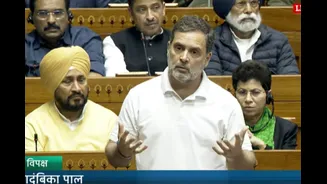India’s Constitution is the heart of its democracy, safeguarding equality, justice, and freedom. It guides citizens and the state, anchoring their pursuits in dignity and law. The Indian Constitution grants
significant rights and duties to citizens, empowering them with knowledge of their entitlements and responsibilities. Civic awareness of the Constitution’s provisions is crucial and empowering for all Indians, ensuring they understand their role as good citizens.
The original Constitution of India contained 395 articles in 22 parts. Later, three parts were added to it as amendments making the tally 25. There are also 12 schedules in the Indian Constitution. Let’s take a look at some of the important articles in the Constitution:
ARTICLE 14 – Equality before the law
In India, everyone is subject to the law. Regardless of your status as a farmer or a Fortune 500 CEO, justice is impartial.
ARTICLE 15 – No discrimination
Discrimination based on caste, gender, religion, or birthplace is prohibited. This article upholds the principle of unity in diversity.
ARTICLE 16 – Equal opportunities in public jobs
Government positions are not reserved for the elite. This article guarantees equal opportunity for all Indians based on merit.
ARTICLE 17 – Abolition of untouchability
This landmark article abolished untouchability, addressing centuries of social injustice with the power of the Constitution.
ARTICLE 19 – The freedom five
Speech, assembly, association, movement, and profession. This article empowers you to express, gather, move, and work within the boundaries of the law.
ARTICLE 21 – Right to life and liberty
Beyond mere survival, this article ensures living with dignity, privacy, and respect—a vital defense in today’s age of surveillance and injustice.
ARTICLE 21A – Right to Education
Every child between the ages of 6 and 14 is entitled to free and compulsory education. No excuses, no exclusions.
ARTICLE 44 – Uniform Civil Code
A continually evolving concept aimed at unifying personal laws irrespective of religion. The UCC debate remains a significant aspect of India’s legal landscape in 2025.
ARTICLE 51A – Fundamental Duties
While we often ponder what India can do for us, this article shifts focus—reminding us of our responsibilities to India.
ARTICLE 280 – Finance Commission
Every five years, this article ensures a fair distribution of funds between the Centre and the States, maintaining federal harmony.






















